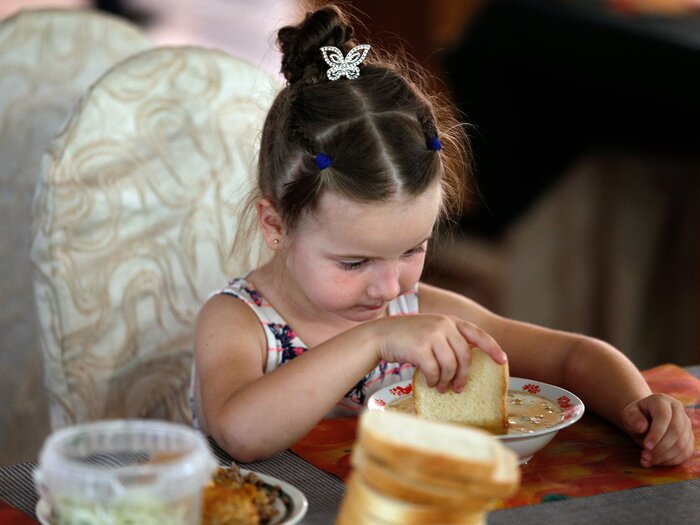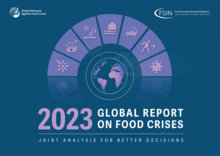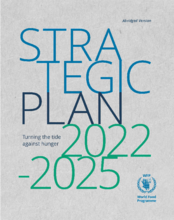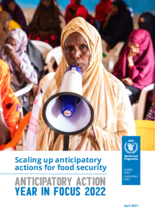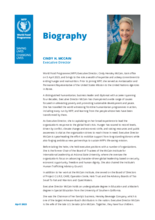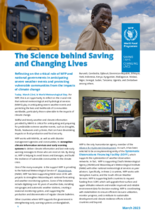Moldova
- Up to 31%
- increase in poverty since February 2022
- 110,000
- refugees from Ukraine
- 2.6 million
- population
Moldova, a small landlocked country bordering Romania to the west and Ukraine to the east, is one of the poorest countries in Eastern Europe.
Nevertheless, since February 2022, Moldova has welcomed the highest rate of Ukrainian refugees per capita. A rapid escalation in energy and food prices has disproportionately affected the socioeconomic status of many vulnerable Moldovans, especially rural, elderly families with multiple children, and people with disabilities. This has led to a significant increase in poverty rates, with 31 percent of the Moldovan population now living below the poverty line compared to 25 percent prior to the war. It has also contributed to an increased risk of tensions between refugees and host communities. In response to a request from the Government of Moldova, The World Food Programme (WFP) established an office in Chișinău in March 2022, to provide support to Ukrainian refugees and vulnerable Moldovans. We have partnered with the Government, UN agencies and other organizations to support ongoing transition from emergency response to promoting economic stability. WFP also works with partners to strengthen social protection systems.
In 2022, the European Council recognized Moldova's European perspective and granted it candidate country status for the EU, opening a new strategic phase for its development. WFP and international partners including donors and NGOs are working to address urgent economic, social and systemic effects of the war in Ukraine, while pursuing long-term plans for EU accession.
What the World Food Programme is doing in Moldova
-
Refugee response
-
WFP, along with partners, provides food and financial support to Ukrainian refugees and their host families in Moldova. At the Palanca crossing point, WFP offers snacks to refugees, addressing their essential food needs from the beginning of their journey into the country. WFP provides three daily hot meals to Ukrainian refugees in accommodation centeres nationwide. Meals are prepared on-site – with cooks in some centres using WFP vouchers to buy products – or delivered by contracted local catering companies. Additionally, WFP offers cash-based transfers to Moldovan refugee-hosting households, assisting with the costs of accommodating extra people. Host families and refugees register online, and hosts receive cash assistance based on the number of people they are accommodating.
-
Cash assistance to vulnerable Moldovans
-
To help the Government support vulnerable Moldovan households affected by increasing food and energy costs, WFP is working with UNICEF, UNFPA, IOM and UNHCR on a joint project: Provision of Emergency Cash Assistance to Crisis-Affected Populations and Integration of Shock Response into the National Social Protection System in Moldova. This provides emergency multipurpose cash to the most vulnerable Moldovans, to cover their essential needs and promote social cohesion between refugees and Moldovans. About 7 percent of the total population received US$14 million in cash as a top-up to national assistance during winter.
-
Social protection system strengthening
-
WFP provides technical and capacity-building support to the Ministry of Labour and Social Protection, to address structural challenges related to the food-security needs of vulnerable Moldovan and refugee communities. WFP will provide support to two specific areas: provision of cash assistance to refugees and vulnerable Moldovans, and provision of hot meals to refugees; and technical assistance/capacity strengthening, which includes contributing to the digitalization agenda, strengthening social food services, enhancing the shock responsiveness of social support delivery systems, and analysing cash mechanisms.
Republic of Moldova news releases
Go to pagePartners and donors
Find out more about the state of food security in Republic of Moldova
Visit the food security analysis pageOperations in Republic of Moldova
-
Republic of Moldova interim country strategic plan (2024–2026)
MD02 - Interim Country Strategic Plan (ICSP) -
Republic of Moldova transitional interim country strategic plan (2022– 2023)
MD01 - Transitional Interim Country Strategic Plan (T-ICSP) -
Limited Emergency Operation (LEO) Ukraine (February 2022 - December 2022)
UA01 - Limited Emergency Operation (LEO)
Contacts
Office
United Nations House, 31 August 1989 Street, 131, MD-2012
Chişinău
Moldova

